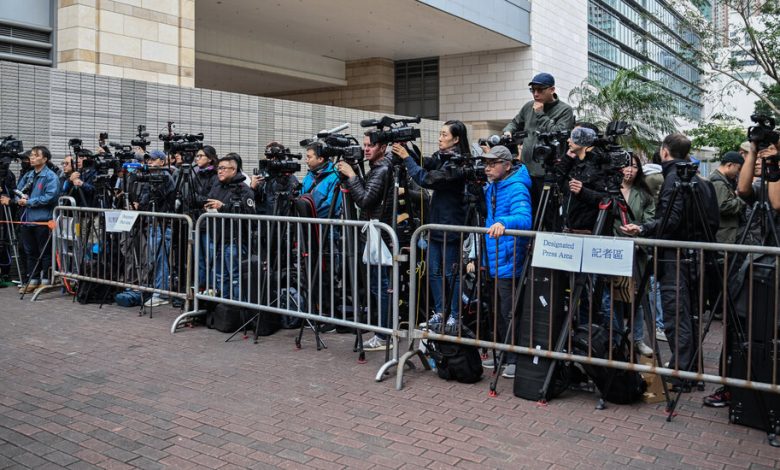U.S.-Funded Broadcaster Leaves Hong Kong, Citing Security Law

The United States-funded news service Radio Free Asia said on Friday that it has closed its office in Hong Kong because of concerns about the city’s recently enacted national security law that targets so-called foreign interference.
Hong Kong’s new national security law, which was passed with unusual speed earlier this month, raised “serious questions about our ability to operate in safety,” the broadcaster’s president and chief executive, Bay Fang, said in a statement. Radio Free Asia said that it had relocated some employees from Hong Kong to Taiwan, the United States, or elsewhere, and laid others off.
The authorities in China have long accused Radio Free Asia, also known as R.F.A., of being a front for the U.S. government. In its statement, the news organization noted that officials in Hong Kong had also recently referred to R.F.A. as a “foreign force” in the context of how it covered the discussion over the new security law.
Hong Kong enacted the security law on March 23, giving the city’s authorities more power to investigate such offenses as “external interference” and the theft of state secrets. The city’s officials, including its security chief, Chris Tang, have insisted that freedoms would be protected and the law would only target national security threats.The government declined a request to comment on Radio Free Asia’s departure, pointing instead to national security laws in other countries to justify legislation in Hong Kong.
“To single out Hong Kong and suggest that journalists would only experience concerns when operating here but not in other countries would be grossly biased, if not outrageous,” a government spokesman said in an emailed statement.
But advocates of press freedom say the laws significantly raise the risks for journalists operating in the city. Its vague definition of external interference can be broadly applied to regular journalistic work, the activists say.
